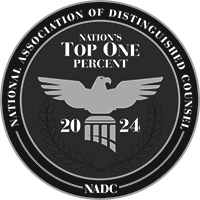- Joseph J. Hoffman, Jr.
- Kenneth A. DiMuzio, Sr.
- Ernest L. Alvino, Jr.
- Anooshay Asim
- Jeremiah J. Atkins
- Peter J. Bonfiglio III
- Vincent Campo
- James M. Carter
- Donald Caruthers, III
- John P. Ciocco
- Kenneth A. DiMuzio, Jr.
- Christine DiMuzio Sorochen
- Michael W. Glaze
- Leonard L. Grasso, Jr.
- Robert P. Grossman
- Joseph J. Hoffman, III
- Richard S. Hoffman, Jr.
- Ryan S. Hoffman
- Cristie R. Nastasi
- J. R. Powell
- Joseph J. Slachetka
- Charles J. Sprigman, Jr.
- James S. Taylor
- Robert J. Wiltsee
Today Your Legal Corner will share “safe driving tips for senior citizens.”
Driving is a privilege that should not be taken for granted. Just like our health, it must be maintained in order to keep it. Most of us received our license in high school. The thought that some day we may not be able to drive and lose our independence is a scary proposition. However as we enter the “back nine” of our lives, reviewing our driving skills is definitely an important task.
Admittedly, driving is not something I would readily give up. However, before deciding it is time to turn in the keys, consider the following defensive driving basics.
Safe driving
According to the AAA Foundation for Traffic Safety, drivers 65 and over are more likely to get into a traffic accident than younger drivers. Yet age alone is not the strongest factor in determining whether you should still drive. Rather, your health and driving record are.
Safe driving limitations
Medication, disease, altered hearing or vision and lack of muscle strength all contribute to erratic driving. If you are currently taking medications, check the warning labels and consult your pharmacist or doctor for information regarding possible interactions or driving limitations.
Since illness may happen at any age, driving may have to cease because an illness may impair agility and judgment when driving.
Changes in vision can also limit the ability of a person to drive. It becomes more difficult to see at night, to see traffic signs, lane lines, other drivers and pedestrians. Hearing deficiencies may block out warning sirens from quickly approaching police, fire or ambulance vehicles.
Seniors for safe driving
Be honest with yourself. Have you received tickets for numerous traffic violations? Are you bumping into other cars when trying to park or do you easily become anxious, frustrated or confused when driving?
Increase safety and minimize risks. Be cognizant of your surroundings by staying focused. Eliminate any activity that may divert your attention from paying attention to the road. Keep your speed to posted limits, making adjustments for road conditions. Maintain a safe driving distance from the car in front of you.
Consider your escape route, in the event another driver makes a driving mistake. Adjust and check all vehicle mirrors, set the GPS, lock the car doors and any other task before you start to drive.
Create self imposed limitations such as avoiding rush hour traffic, not driving at night and avoiding rush hour traffic and/or taking a driving refresher course may prove helpful. Other times, one simply needs to have the courage to leave the car keys at home!
Safe driving course
To find additional information on senior driving: see the AARP Drive Safety website and consult the Department of Motor Vehicles in your area for a safe driving course.
Till next time, God bless, keep smiling, when Your Legal Corner will discuss “What to do if involved in an automobile accident.”
Victoria M. Dalton is an attorney with the law firm of Hoffman DiMuzio.
For questions, contact Victoria at [email protected].
Please note that Your Legal Corner was created to provide educational articles about the law and is not legal advice.
Submitting this form does not create an attorney-client relationship, but a lawyer from our firm will contact you as soon as possible.


















